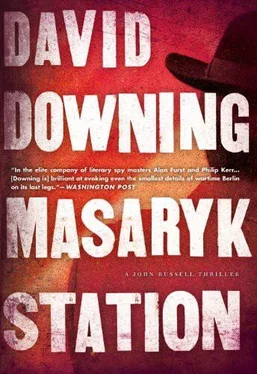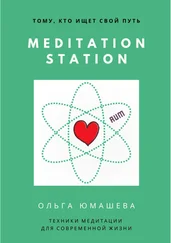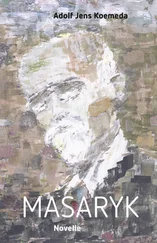David Downing - Masaryk Station
Здесь есть возможность читать онлайн «David Downing - Masaryk Station» весь текст электронной книги совершенно бесплатно (целиком полную версию без сокращений). В некоторых случаях можно слушать аудио, скачать через торрент в формате fb2 и присутствует краткое содержание. Год выпуска: 2013, ISBN: 2013, Издательство: Soho Press, Жанр: Шпионский детектив, на английском языке. Описание произведения, (предисловие) а так же отзывы посетителей доступны на портале библиотеки ЛибКат.
- Название:Masaryk Station
- Автор:
- Издательство:Soho Press
- Жанр:
- Год:2013
- ISBN:9781616952228
- Рейтинг книги:4 / 5. Голосов: 1
-
Избранное:Добавить в избранное
- Отзывы:
-
Ваша оценка:
- 80
- 1
- 2
- 3
- 4
- 5
Masaryk Station: краткое содержание, описание и аннотация
Предлагаем к чтению аннотацию, описание, краткое содержание или предисловие (зависит от того, что написал сам автор книги «Masaryk Station»). Если вы не нашли необходимую информацию о книге — напишите в комментариях, мы постараемся отыскать её.
Masaryk Station — читать онлайн бесплатно полную книгу (весь текст) целиком
Ниже представлен текст книги, разбитый по страницам. Система сохранения места последней прочитанной страницы, позволяет с удобством читать онлайн бесплатно книгу «Masaryk Station», без необходимости каждый раз заново искать на чём Вы остановились. Поставьте закладку, и сможете в любой момент перейти на страницу, на которой закончили чтение.
Интервал:
Закладка:
‘Okay, so when do we leave?’
‘The sooner the better.’
Effi went in to wake Rosa, and found her getting dressed. ‘Sweetheart, we’re all going away for the weekend.’
Rosa’s face lit up. ‘Where to?’
‘The Havelsee. There’s a hotel we know. So pack up your drawing stuff and a book to read.’
She went back to Russell. ‘We have to tell Zarah. And Thomas.’
‘Tell them what?’
‘I don’t know. Something. If Beria’s people do come looking for us, the first places they’ll try when they draw a blank here are Zarah’s and Thomas’s. We have to give them some kind of warning.’
‘You’re right,’ Russell agreed reluctantly. ‘But don’t scare the life out of Zarah, or we’ll never get away.’
‘So what do I tell her? It’s okay to worry, but not too much?’
Russell grinned. ‘Just tell her that’s there probably nothing to worry about, but to keep her eyes open, just in case. And tell her not to let any strangers into the flat.’
They made the calls. Zarah, as predicted, was upset, and angry at Effi for making her so. Thomas was his usual stoic self: ‘If I understand you right, you’re not going to tell me where you’re going, and you don’t want me to tell anyone else.’
Fifteen minutes later they were carrying their bags down the stairs. If they’d forgotten something crucial, at least it wasn’t the gun that Russell had bought in Wedding the previous day, as that was in his pocket.
The street outside was blissfully empty, the walk to the station free of alarms, false or otherwise. But Rosa knew there was something up. ‘This feels like an adventure,’ she said as they climbed the stairs to the platform.
Aue was an hour’s drive southwest from Chemnitz, but Strohm had only been going ten minutes when the first checkpoint appeared. There were no signs to say so, but he was clearly passing into territory the Soviets considered their own. After his credentials had been examined with almost painful thoroughness, he was given explicit instructions on where to report in Aue, and strongly warned against leaving his present road for any reason at all. As he drove on through the pleasant Saxon hills, the Erzegebirge looming on the southern horizon, Strohm wondered what terrible secrets might lurk down the various turnings.
Aue sat in the mouth of a valley, a much smaller town than Chemnitz, but with more sense of bustle. At the Soviet Military Administration office on the town’s main street, the MGB officer that Marohn had mentioned-a Major Abakumov-was waiting for him. The Russian greeted him politely enough, but he was clearly impatient.
‘So what exactly is the problem?’ Strohm asked.
‘You do not know?!’
‘Not the details, no,’ Strohm said calmly.
‘The problem is that your railwaymen have been making difficulties. And they are now threatening a strike!’
‘Why?’
‘They say that working with uranium is too dangerous, that some men have developed serious illnesses because of their proximity to the ore.’
‘Are they right?’
Abakumov shrugged. ‘Such work is not pleasant, of course it isn’t. But needs must. The Soviet Union needs this uranium, for reasons that I’m sure you know. And we won’t tolerate this sabotage.’
‘What would you like me to do?’
‘Put a stop to it. How do you do it is your concern, but feel free to tell the comrades that if they won’t listen to you, they’ll have to listen to me. If we have to arrest every last one of them, and draft in replacements, then we will.’
They were, Strohm realised, determined to get the uranium.
‘The chief troublemaker is a man named Pieck,’ Abakumov was saying. ‘Do you know him?’
‘Only by reputation. He was a resistance leader in this area.’
Abakumov wasn’t impressed. ‘That war is over. It’s time he realised that another struggle-one every bit as crucial-is now underway. We have one hundred-thousand workers in this area, all busy taking uranium from the ground, and we won’t have their efforts brought to nothing by a few cowardly railwaymen.’
Strohm ignored the insult. ‘If you tell me where to find Pieck, I’ll go and talk to him now.’
‘Down by the station. The union offices are in the yard.’
Strohm considered leaving his car outside the Russian HQ-if it didn’t impress them, it would certainly alienate Pieck-but what was the point in pretending? He was the Man from Berlin, come to scold them back into line.
Manfred Pieck was alone in his office. He was a man of around Strohm’s own age, with a shock of dark brown hair and watchful grey eyes behind small spectacles. He listened patiently to Strohm’s explanation of his presence, merely sighing with obvious frustration at a couple of points. ‘I saw you drive up,’ he said eventually. ‘If you’ll take us both out, I can show you what’s going on.’
‘All right.’
Once they were in the car, Pieck ran a hand along the leather dashboard. ‘Very nice,’ he said.
‘My boss in Berlin thought it might impress the Russians.’
‘You should have come in a tank.’
Pieck directed him through the town, and on to a small road which wound up a wooded hillside. After about ten minutes they suddenly emerged above another valley, and Pieck asked him to stop. At the bottom of the slope a small town straddled a fast-running stream, and in the fields further down hundreds of tents had been pitched on either side of a single railway line. ‘There’s a mine a little way up the valley,’ Pieck told him. ‘You can’t see it from here, but that’s where the miners live,’ he added, pointing at the tents. ‘Men and women.’
‘Are they locals?’
‘Not many of them. There were some volunteers to begin with, but that supply soon dried up. Most are prisoners of one sort or another-POWs brought back from Russia, youths from all over the Zone whom the Russians claim were Nazi werewolves. I tell you, with all the ones they’ve captured, it’s a miracle the Nazis lost.’
‘Did any of these people have any mining experience?’
‘Hardly a one. With predictable results. This year, in the Aue district, we’ve had more than two thousand deaths.’
‘Two thousand!’
‘I think that’s why they call Aue the “Gate of Tears”,’ Pieck said drily. ‘But accidents are only part of it. The working conditions are appalling-there’s not enough food, no sanitation, and that’s before you get to the problem of radiation. These people spend half their days either knee-deep in radioactive sludge or breathing in the dust. Do you know what radiation does to the body?’
‘I’m not a scientist.’
‘Neither am I, but I’ve talked to people at Chemnitz University. And I’ve seen the results with my own eyes-the skin lesions, the infections, all sorts of symptoms which can’t be explained any other way. The doctors around here are out of their depth, and they know it. The local hospitals are all full up, but the Soviets won’t let them move any patients on to other districts.’
Strohm thought for a moment. ‘All of which is terrible,’ he said eventually. ‘But none of these people are your responsibility.’
Pieck gave him a look. ‘Strictly speaking, that’s true. So let’s drive on down, and I’ll show you what my men are doing.’
Just above the town the railway line ended in a pair of sidings. Between these, there was a narrow gauge line which came down from the mine. One trainload had just arrived, and a large crowd of railwaymen were shovelling ore from one group of wagons to the other in a dense cloud of yellowish dust. They all had cloth masks tied across their faces, but they might just as well have hung charms around their necks.
‘They’re working,’ Strohm said stupidly.
Читать дальшеИнтервал:
Закладка:
Похожие книги на «Masaryk Station»
Представляем Вашему вниманию похожие книги на «Masaryk Station» списком для выбора. Мы отобрали схожую по названию и смыслу литературу в надежде предоставить читателям больше вариантов отыскать новые, интересные, ещё непрочитанные произведения.
Обсуждение, отзывы о книге «Masaryk Station» и просто собственные мнения читателей. Оставьте ваши комментарии, напишите, что Вы думаете о произведении, его смысле или главных героях. Укажите что конкретно понравилось, а что нет, и почему Вы так считаете.












